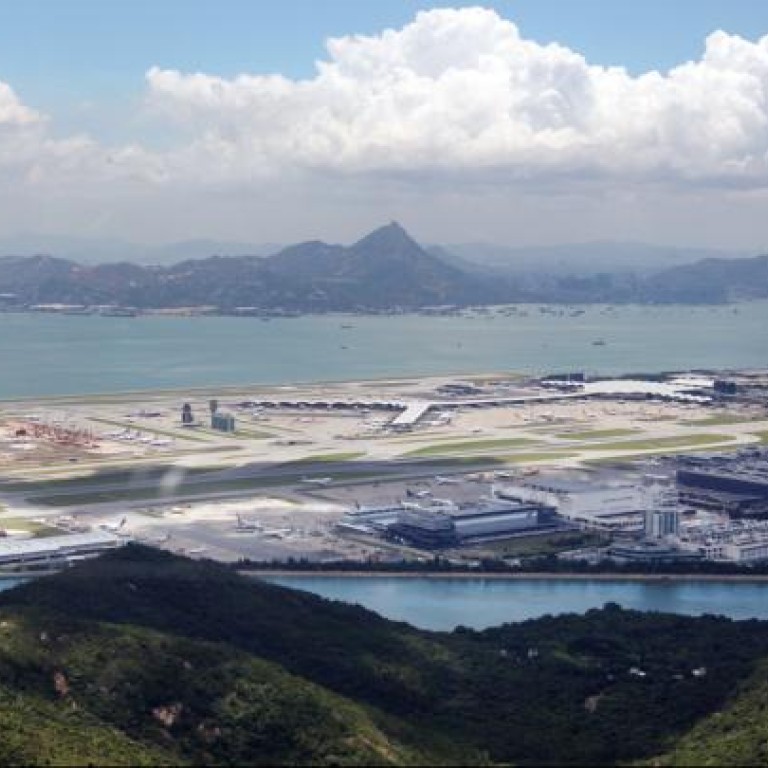
A silent reward for a timely kowtow?
One theory has it that Beijing and London gained much from a deal over HK's airport
SCMP, September 19
I like conspiracy theories and here is one for you: the reason former British prime minister John Major was ready to be the first head of a major Western government to visit Beijing after the Tiananmen incident in 1989 is that he expected to be rewarded for this grovel.
And he was. This conspiracy theory says there was never any serious danger of the talks breaking down. Both sides had objectives important to themselves and both found that they could accommodate each other's objectives by looking aside a little when the embarrassing bits came up.
Beijing's objective was to regain the unreserved recognition of foreign governments following the suppression of the protest movements of 1989. Although the foreign embassies were still in place, foreign good opinion was not. Only banana republics would make official visits of state. For two years major Western governments treated China as a pariah.
Britain was the icebreaker with Mr Major's visit and he was not entirely happy about it. Word had it afterwards that one reason David Wilson did not serve another term as governor of Hong Kong was that his prime minister had been called on to do too many kowtows in Beijing. Mr Major looked aside and did them nonetheless.
His own objective was to win a general election due in Britain within a year at the time. He had come to top office through the resignation of his predecessor, Margaret Thatcher, and her shoes were widely considered too big for him. He wanted to win an election as prime minister in his own right to prove that he was no lightweight.
At the time, however, Labour was ahead in the polls and drawing stronger funding support than it had previously enjoyed. To overcome this lead, the Conservatives needed to pull out all the stops. Money had to pour from the money taps if they were to win.
It then transpired that a significantly disproportionate number of contracts for the Hong Kong airport deal signed in Beijing went to British firms, and did so just before that critical election, which was held in April 1992, and which Mr Major narrowly won. The Conservative Party was not short of funds in that election. Draw your own conclusions. I say one plus one equals two.
At the time Beijing had already caved in to demands by Hong Kong and British negotiators that the new airport be built at huge expense in what would normally be considered a highly inappropriate location for an airport, right beside Hong Kong's second-highest mountain.
Chinese negotiators had proposed a location north of Shenzhen for a big Pearl River Delta regional airport. It was much the best choice, even at the time. It is particularly so now in hindsight as we face a HK$130 billion bill for a third runway.
But Beijing said nothing and it also said nothing about all those contracts awarded to British firms. It looked aside when the embarrassing bit came up. That's what it saw as its obligation to John Major for having been first to come back to Beijing.
That's my conspiracy theory. I can't prove it, but it fits into a puzzle that no other piece of explanation quite fits.
What is really notable, however, in this new book by Chen Zuoer, a former deputy director of the Hong Kong and Macau Affairs Office, is the assertion that the Foreign Office in London hid from governor Chris Patten an agreement it had reached with Beijing on Hong Kong's constitutional development.
We have suffered considerable grief in Hong Kong over this business of the political arrangements that Mr Patten put in place and which were quickly overturned after the handover. Did it all really happen because the Foreign Office kept its own most important representative in the dark?
I do no more than call it an assertion on Mr Chen's part because this is an astounding revelation if true. It is no secret that the Foreign Office was on bad terms with Chris Patten. But did it deliberately subvert him in something so important? We need to hear from Mr Patten.
Is that really the way things happened, Chris?

